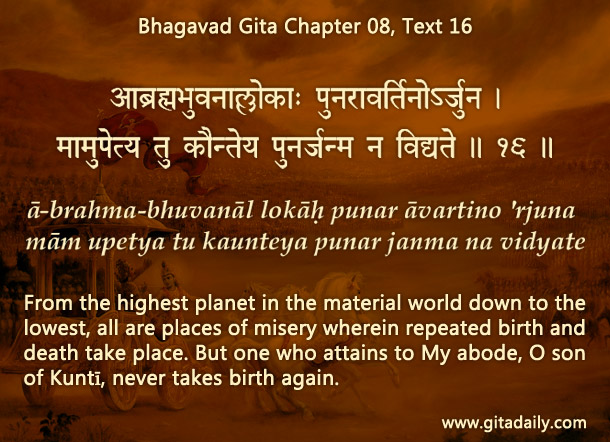We all wish to fare well in life; we seek positions and possessions as markers of our progress and success. Often, we lament because we haven’t fared as well as we would have liked to.
To avoid unnecessary lamentation, we need to see things in perspective. And the most important perspective-restoring insight is that everything in this world is temporary. All paths in life, no matter how successful and trailblazing, end ultimately in one place: the graveyard. No matter how well we fare in life, we eventually have to say farewell to life. And the farewell won’t be joyful; it will be tearful and fearful. Why? Because everything we have craved and slaved for will be ripped away from us in one excruciating moment at death. Underscoring the temporariness of everything in the material world, the Bhagavad-gita (08.16) stresses that even the places of the highest achievements are marred by death, which pervades the entire cosmos.
Does this mean that we shouldn’t try to fare well in life, that we should just passively resign ourselves to our fate? No, we need to expand our conception of what faring well in life means. Gita wisdom explains that we are eternal souls who are meant to delight in eternal love with our all-attractive Lord, Krishna. If we practice bhakti-yoga during our lifetime and thereby make Krishna our dearest object of love, we will attain his abode after death (08.05). Thus, we won’t have to say farewell to the one we love, but will be united with him forever.
Indeed, when we live in such a way that we never have to say farewell to what is the dearest to us, that is the life in which we truly fare well.
Think it over:
- What perspective can protect us from unnecessary lamentation about our status in life?
- Why is farewell in life not joyful?
- What defines a life in which we truly fare well?
***
08.16 From the highest planet in the material world down to the lowest, all are places of misery wherein repeated birth and death take place. But one who attains to My abode, O son of Kuntī, never takes birth again.
To know more about this verse, please click on the image
Explanation of article:
Podcast:


Leave A Comment